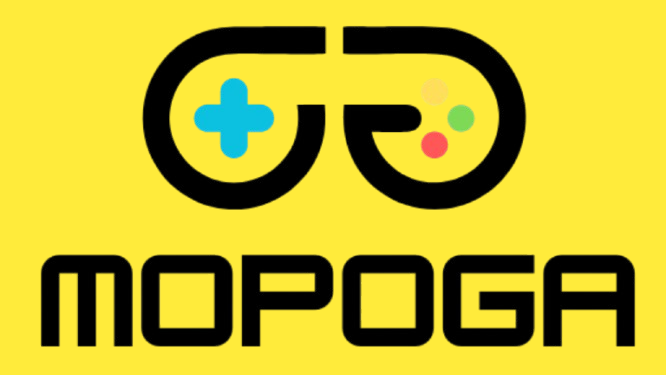Introduction: Why “Mopoga” Captures Attention
“Mopoga” is a term you may have encountered online, in gaming forums, or via social media trends. It’s intriguing because it’s not yet widely defined in formal references, making it feel mysterious. Yet, in recent years, “Mopoga” has gained traction as a name, a brand, and a concept—especially in the realm of digital gaming. In this article, we’ll uncover the meaning, trace its origin, explore how it is used today, and examine its cultural and technological relevance—always focusing on Mopoga as the keyword.
Defining Mopoga: What Does It Mean?
At its core, Mopoga is primarily known as an online gaming platform where users can play mobile games directly in a browser, without needing to download apps. It aims to offer quick access, device compatibility, and convenience. (Data from Mopoga’s about pages confirms that users can play games browser-based across devices.)
Yet beyond that, “Mopoga” also serves as a brand identity in digital entertainment: a concept of mobile-first, frictionless access to interactive experiences. In some circles, the term is also used more loosely to indicate any service that offers “games without downloads” or “instant mobile entertainment.” Thus, Mopoga is both a proper name and a conceptual model in the digital gaming industry.
The Origin of Mopoga: From Vision to Platform
Unlike ancient words with centuries of history, Mopoga is a modern creation. Its origin lies in the intersection of mobile technology and browser capabilities. The name likely emerged as a brand to reflect mobile play (“mo-”) and gaming (“-poga,” perhaps a coined suffix).
The platform’s founders set out to address a growing friction in mobile gaming: device storage limits, frequent updates, and compatibility issues. They envisioned a system where people could open a browser and instantly play. Over time, Mopoga evolved from a simple browser gaming site into a broader ecosystem supporting multiple game types and interactive content.
Thus, while Mopoga lacks deep historical roots, its origin story is one rooted in digital innovation—responding to constraints of app ecosystems and pushing toward seamless access.
Key Features and How Mopoga Works
The attraction of Mopoga lies in several defining features:
- No downloads required: Users can access games directly via a web browser, eliminating the need to install heavy apps or files.
- Cross-device compatibility: Because it’s browser-based, the same game can be played on smartphones, tablets, or PCs.
- Mobile optimization: The platform is designed to be responsive and efficient on smaller screens, with touch support, streamlined interfaces, and swift loading.
- Varied game genres: Titles include casual puzzles, adventure or narrative games, and in some cases, adult-themed interactive content (mature audiences).
- Free access with optional upgrades: Many games are available for free, often supported by ads or optional premium content.
Under the hood, Mopoga likely leverages HTML5, lightweight web technologies, and server-side handling of assets, allowing games to run fluidly without requiring heavy local resources.
Mopoga in the Adult Gaming Niche
One of the more discussion-worthy domains of Mopoga is its presence in the mobile adult gaming (mature content) space. Some websites describe Mopoga as a platform specializing in interactive adult games—visual novels, role-playing adult stories, and erotic adventures—designed for browser play. This side of Mopoga draws attention partly because it mixes gaming mechanics with mature story elements.
In that niche, Mopoga attracts users who favor narrative choice, immersive storylines, and discreet access (without requiring app installations). Because mainstream app stores often restrict adult content, browser-based solutions like Mopoga have a practical advantage in reach. However, this adult focus is not the entirety of Mopoga’s content—some listings also feature casual, non-adult games.
Challenges and Ambiguities Around Mopoga
Because Mopoga is relatively new and spans multiple content domains, several ambiguities persist:
- Brand vs generic usage: Some people use “Mopoga” to refer to any “game without download” service, which can blur the brand’s boundaries.
- Content ethics and moderation: In the adult gaming industry, content regulation, user safety, privacy, and age verification are ongoing challenges.
- Authenticity of information: Many online descriptions of Mopoga are based on user blogs or secondary sources, rather than structured corporate or academic records, making verification more challenging.
- Platform stability and legitimacy: As with many nascent digital brands, questions about longevity, security, and trustworthiness are natural.
Thus, while Mopoga is real in its current uses, one must approach the discussion of it with a balance of excitement and critical thinking.
Modern Relevance: Why Mopoga Matters Today
Mopoga’s significance arises from a few converging trends in technology, media, and user behavior:
- Demand for frictionless access: Users are increasingly seeking services that require no cumbersome installations or updates. Mopoga meets that desire.
- Device diversity and constraints: Many users use low-storage or older devices; browser-based games are more accessible on such hardware.
- Shift in content delivery: The model of web-based interactive content (versus static media or installed apps) is gaining momentum in gaming, storytelling, and online experiences.
- Safe niches: Especially in mature content, browser platforms often avoid strict app store restrictions, giving creators and users more freedom.
- Cultural adaptability: Mopoga’s model can adapt to local languages, niche genres, and user communities, enabling the creation of localized versions or unique content.
Because Mopoga bridges convenience and content variety, it holds relevance in discussions about the future of mobile entertainment.
Use Cases: How People Actually Use Mopoga
Here are common use cases observed in the wild:
- Quick game breaks: Someone might open their browser for a few minutes of casual gameplay—no downloads, play.
- Mature narrative experiences: Users seeking interactive storytelling with adult themes might gravitate to Mopoga’s mature game catalog.
- Device constraints workaround: On devices that can’t support large games or frequent updates, Mopoga’s browser approach helps bypass limitations.
- Cross-platform continuation: Starting a session on one device and resuming on another because the session is tied to the browser or account, not app installation.
- Exploratory gaming: Players who want to sample many games risk-free without committing to installations often favor Mopoga.
These use cases demonstrate how Mopoga aligns with modern user needs for flexibility and immediacy.
Best Practices and Tips for Users
If you’re curious to try Mopoga or explore it safely, here are some practical tips:
- Use modern, up-to-date browsers (such as Chrome, Firefox, and Edge) for optimal compatibility.
- Ensure you have a stable internet connection—browser games depend on consistent connectivity.
- For adult content, verify age restrictions and use discretion regarding privacy, anonymity, and device security.
- Bookmark your favorite titles or Mopoga’s homepage to save time.
- Monitor permissions: avoid granting unnecessary access or installing suspicious add-ons.
- Understand the monetization model: some content may be free, but premium features or in-game purchases may exist.
Being cautious yet curious is a good approach as Mopoga continues to evolve.
Mopoga’s Future: Potential Growth and Evolution
What might lie ahead for Mopoga?
- Expanded library and genres: More casual, family-friendly, or educational games to broaden appeal.
- Improved account sync: Seamless cloud saves, cross-device continuity, and social features.
- Enhanced content moderation and verification, particularly for adult content, stricter safeguards, and higher ethical standards.
- Technological integration: Use of WebAssembly, streaming, or hybrid cloud techniques to boost game performance.
- Localized versions: Custom Mopoga variants tailored to regions, languages, or cultural content.
- Partnerships and licensing: With indie developers or content creators to diversify game offerings.
If it navigates challenges well, Mopoga could grow from niche curiosity into a mainstream player in lightweight, accessible gaming.
Summary: Mopoga in Full View
Mopoga is a fresh and evolving concept in digital entertainment—primarily a browser-based gaming platform that emphasizes ease, accessibility, and mobile readiness. Its origin is recent, born from the desire to remove barriers typical in mobile gaming ecosystems. In contemporary usage, Mopoga spans casual, narrative, and adult gaming domains, with strengths in frictionless access and cross-device compatibility.
Yet, complexity remains: brand ambiguity, content regulation, and legitimacy questions exist. Still, its relevance is fundamental in an era of demand for instant, flexible experiences. As it matures, Mopoga may illuminate how interactive content can move beyond apps and into the browser as a central canvas.
For now, Mopoga rests at the intersection of curiosity, innovation, and the shifting expectations of digital users. Its mysterious aura may fade as more users test it, talk about it, and shape its future—but that aura is part of what makes Mopoga today such a fascinating term to uncover.




